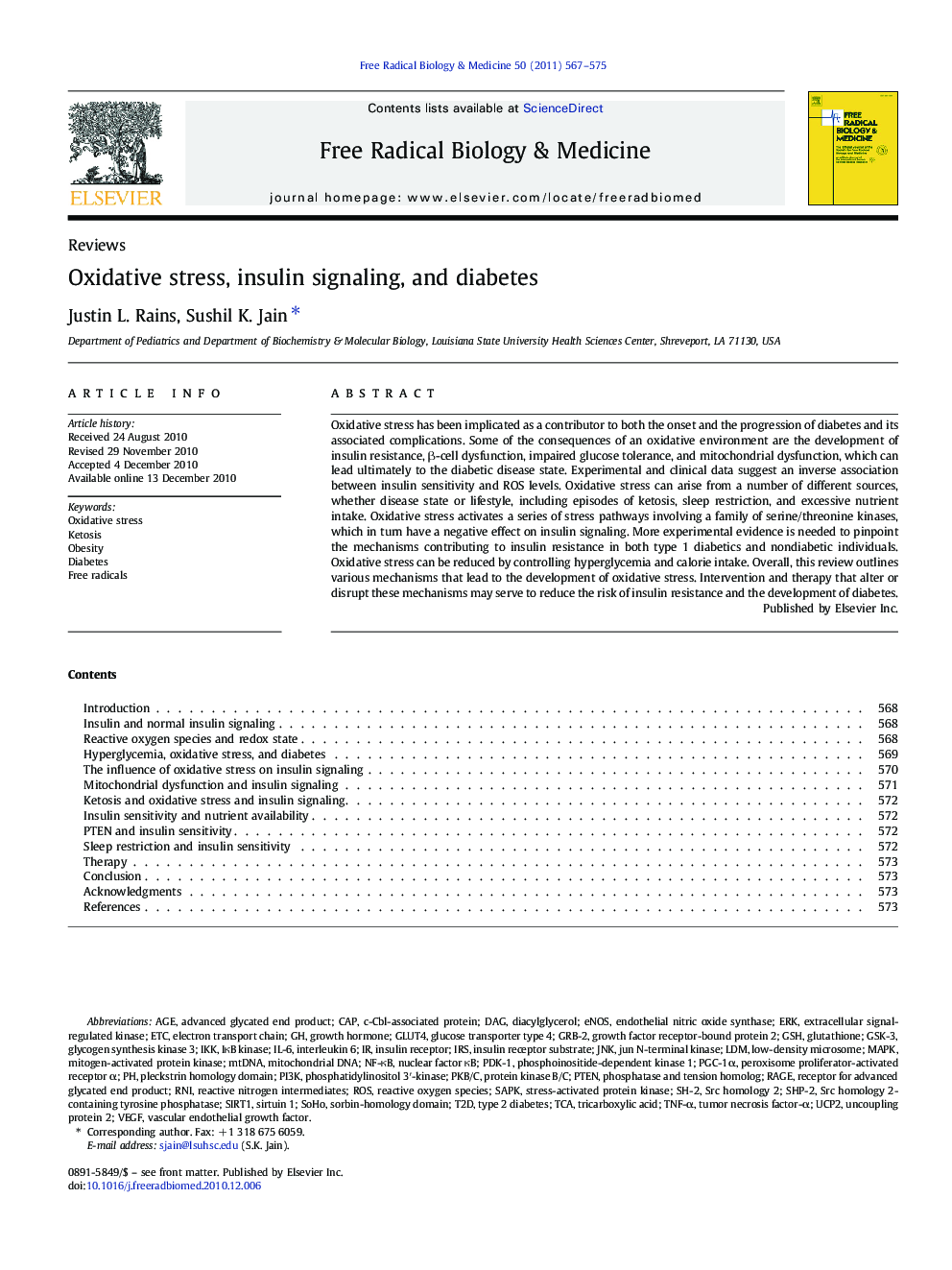| Article ID | Journal | Published Year | Pages | File Type |
|---|---|---|---|---|
| 10738565 | Free Radical Biology and Medicine | 2011 | 9 Pages |
Abstract
Oxidative stress has been implicated as a contributor to both the onset and the progression of diabetes and its associated complications. Some of the consequences of an oxidative environment are the development of insulin resistance, β-cell dysfunction, impaired glucose tolerance, and mitochondrial dysfunction, which can lead ultimately to the diabetic disease state. Experimental and clinical data suggest an inverse association between insulin sensitivity and ROS levels. Oxidative stress can arise from a number of different sources, whether disease state or lifestyle, including episodes of ketosis, sleep restriction, and excessive nutrient intake. Oxidative stress activates a series of stress pathways involving a family of serine/threonine kinases, which in turn have a negative effect on insulin signaling. More experimental evidence is needed to pinpoint the mechanisms contributing to insulin resistance in both type 1 diabetics and nondiabetic individuals. Oxidative stress can be reduced by controlling hyperglycemia and calorie intake. Overall, this review outlines various mechanisms that lead to the development of oxidative stress. Intervention and therapy that alter or disrupt these mechanisms may serve to reduce the risk of insulin resistance and the development of diabetes.
Keywords
T2DRNIPDK-1TCAERKSAPKeNOSIRSSHP-2c-Cbl-associated proteinGSHPGC-1αIKKJun N-terminal kinaseGSK-3GLUT4UCP2RAGEsirtuin 1GRB-2Sirt1NF-κBPI3KLDMIL-6JnkMitochondrial DNAIκB kinaseMAPKROStricarboxylic acidinsulin receptor substrateinterleukin 6DiabetesOxidative stresstumor necrosis factor-αSoHoPleckstrin homology domainType 2 diabetesdiacylglycerolmtDNAFree radicalsDAGelectron transport chainAgeendothelial nitric oxide synthaseVascular endothelial growth factorVascular Endothelial Growth Factor (VEGF)TNF-αnuclear factor κBphosphatidylinositol 3′-kinaseObesityGlucose transporter type 4Src Homology 2Growth hormoneETcphosphoinositide-dependent kinase 1reactive nitrogen intermediatesuncoupling protein 2mitogen-activated protein kinaseStress-activated protein kinasegrowth factor receptor-bound protein 2PtenKetosisCaPextracellular signal-regulated kinaseGlutathioneReactive oxygen speciesinsulin receptorperoxisome proliferator-activated receptor α
Related Topics
Life Sciences
Biochemistry, Genetics and Molecular Biology
Ageing
Authors
Justin L. Rains, Sushil K. Jain,
